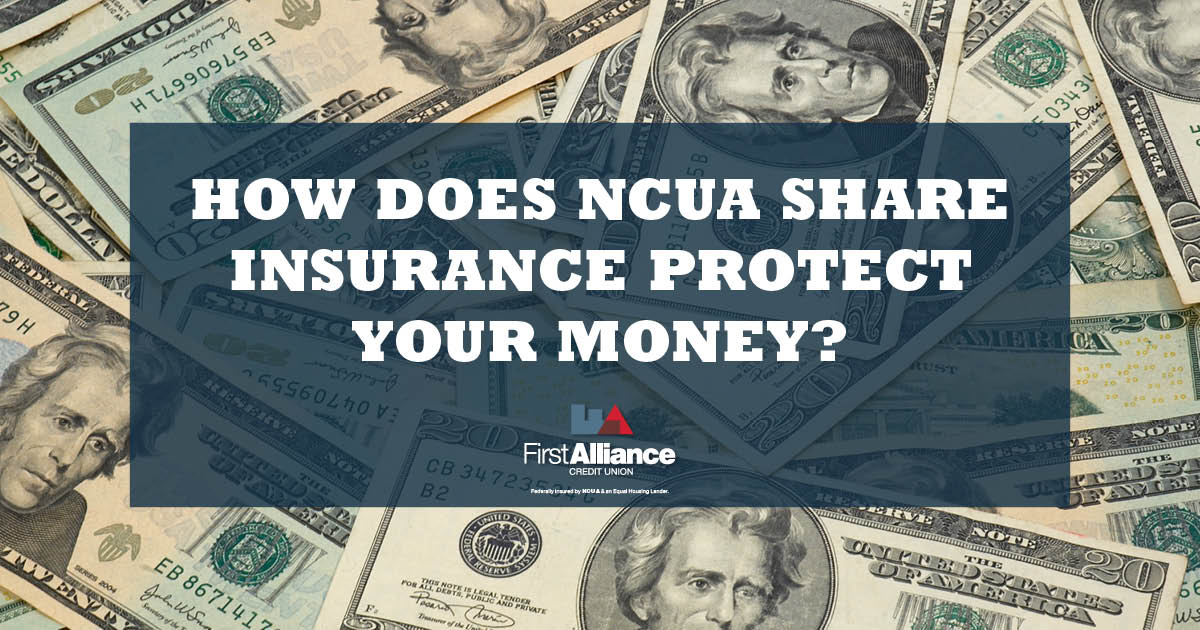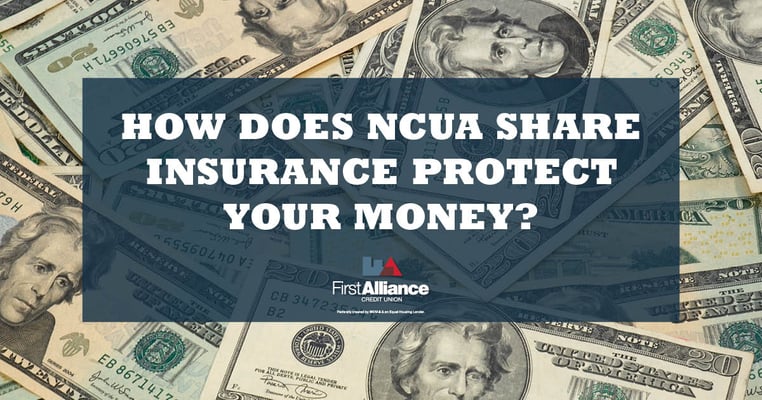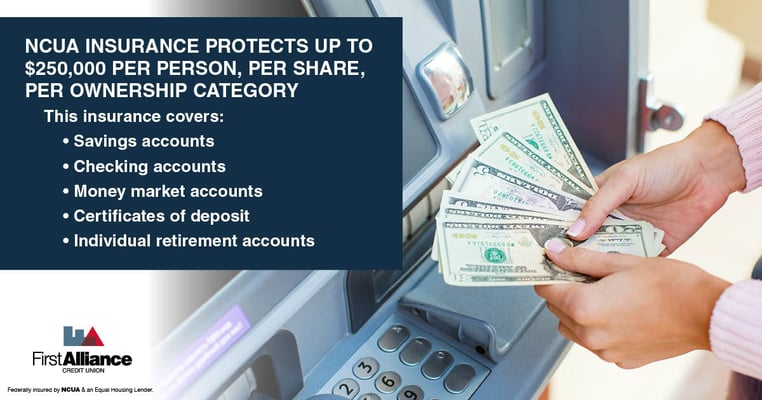First Alliance Credit Union Membership Benefits Highlight: TruStage
We consider insurance to be an important part of your financial well being. Which is why we are proud to partner with TruStage Insurance to provide...
2 min read
 Chris Gottschalk
:
Mar 15, 2023 8:52:31 AM
Chris Gottschalk
:
Mar 15, 2023 8:52:31 AM

Ask almost anyone, and they’ll tell you that a bank or a credit union is the safest place to keep your hard-earned money. What less people know the answer to, though, is why. How can you be sure that the money you deposit in a credit union, say, won’t turn to ash in a fire, get snatched by a robber or simply vanish into thin air if the credit union fails?
As it turns out, the answer can be summed up in four letters: NCUA. That stands for the National Credit Union Association, an independent federal agency responsible for regulating and supervising federally-insured credit unions in the United States.

One of the NCUA’s goals is to protect the funds credit union members have in their account. They do this with something called share insurance. This guarantees that if your credit union fails, you will get up to $250,000 of your money back per person, per institution, per ownership category.
In other words, let’s say you have $5,000 in a checking account, $25,000 in a traditional savings account and $200,000 in certificates of deposit. If your credit union fails, the NCUA share insurance guarantees you will get all this money back.
It’s important to know, though, that ownership category is different than account type. In other words, all the accounts in the above category would be single ownership if you’re the only one who holds the account. If you and a partner had a joint savings account, that would be a different ownership category, and the money in that account would also be insured up to $250,000.
You should also know that the federal government requires every federal credit union to carry NCUA share insurance. So if your credit union is NCUA insured, your deposits are automatically covered with no extra effort on your part.
It’s worth mentioning that if you do have more than $250,000 in one financial institution, you might want to speak with a Member Experience Advisor about how to structure your accounts so that all your money is protected by the NCUA.
Another advantage of NCUA share insurance is the types of accounts it covers. These include:
 Why is Share Insurance so Important?
Why is Share Insurance so Important?It’s hard to overstate just how important NCUA share insurance is to credit union members in the United States. This is a guarantee by the United States government that even if a credit union fails, up to $250,000 of the money in your account will be safe. For most people, that means the most they have to worry about if a credit union goes under is what credit union their accounts will be transferred to.
If you’ve ever wondered why a credit union is a safe place to keep your money, the answer is the NCUA’s share insurance. This guarantees that if a credit union fails, up to $250,000 of your money per person, per institution, per ownership category will be covered. This includes accounts like checking and saving accounts, as well as money market accounts and certificates of deposit.
You should also know that First Alliance Credit Union is a federally insured credit union, and its funds are completely protected by NCUA share insurance. For only $5, you can become a member and rest assured that your money is safe.
We consider insurance to be an important part of your financial well being. Which is why we are proud to partner with TruStage Insurance to provide...

The first time most people hear the term “GAP insurance” is when an auto dealer is asking them if they want to purchase it for their car, along with...

For many people, the first time they consider if they need moving insurance is when a moving company asks them if they want to purchase it. That can...